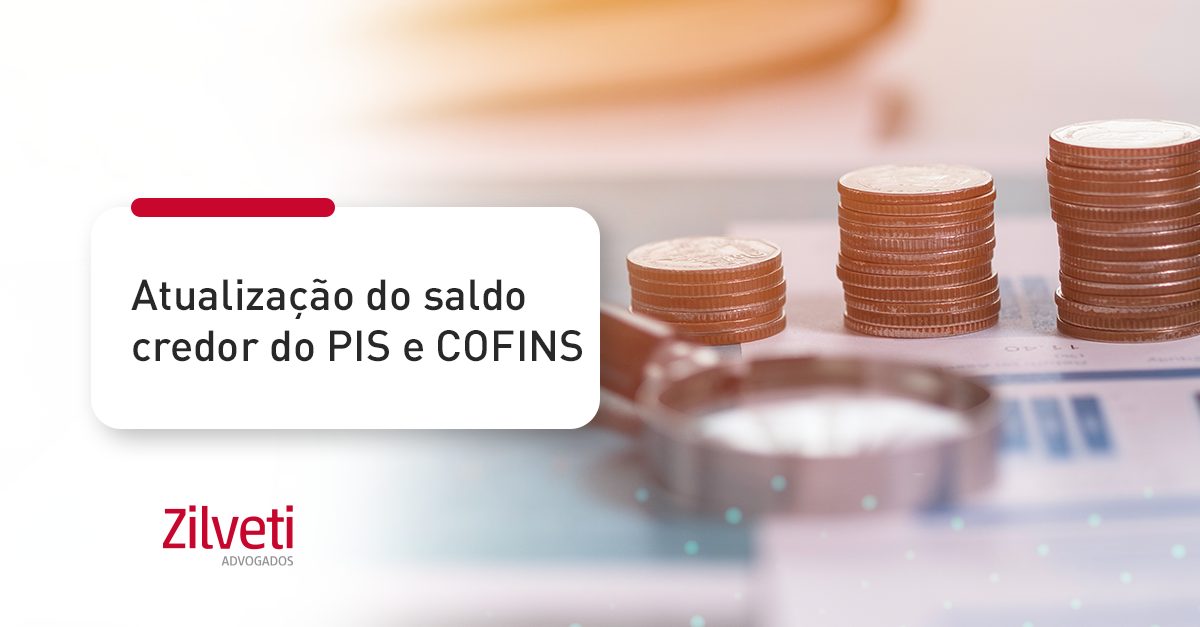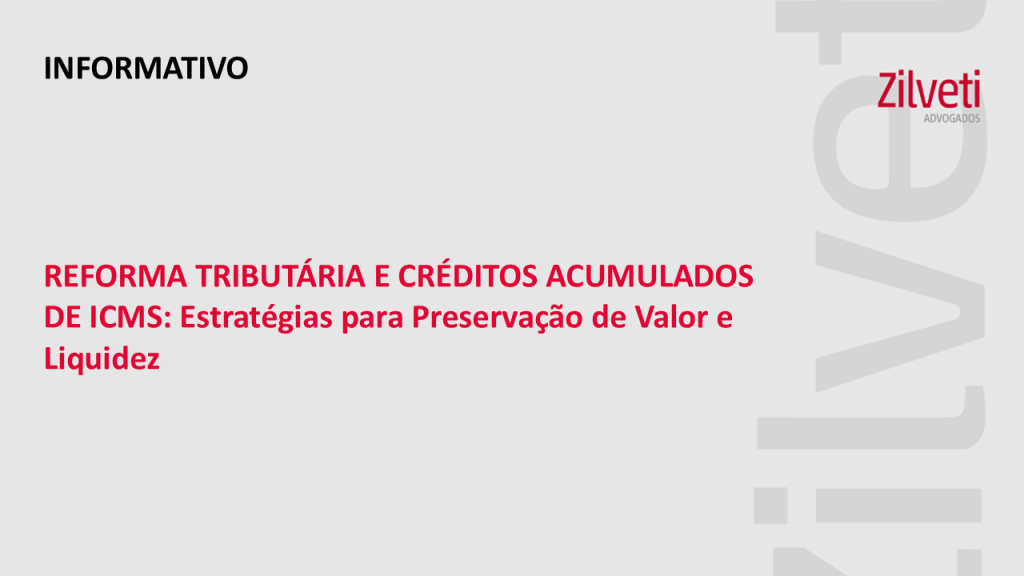THE POSSIBLE UPDATE OF THE PIS/COFINS CREDIT BALANCE
By Lucas Roberto Trilha
Numerous companies calculate PIS and COFINS under the non-cumulative system. Based on this system, such contributions are levied at a total rate of 9.25% and the legal entity is entitled to calculate credits to deduct from the amount to be paid.
In this sense, there are two possible scenarios at the end of the calculation period. The first occurs when the amount of PIS/COFINS debits exceeds the credit amount. In this case, the company must pay these taxes to the federal coffers, which is usually done via DARF or DCOMP. The second hypothesis is realized when the value of credits exceeds the value of debits. In this scenario, there is no amount to be disbursed and the taxpayer is left with a PIS and COFINS credit balance, which can be used in future calculations.
Thus, with the exclusion of ICMS from the PIS and COFINS calculation base, for example, companies also have two possible scenarios for recovering amounts unduly collected. First, when the scenario arises in which the company paid PIS/COFINS in a given month (debit greater than credit), recovery of amounts unduly collected can occur via request for refund or compensation. On the other hand, when there is no payment of PIS/COFINS in the month (credit greater than debit), there is no refund or compensation, considering that there was no actual disbursement.
In this last scenario, one of the alternatives for companies is to reassess the taxes, deducting the amount of contributions unduly impacted by the ICMS inclusion, in order to increase their credit balance.
However, in accordance with Federal Revenue guidelines, book-entry PIS and COFINS credits, which make up the credit balance of companies, cannot be monetarily restated, nor can they be subject to interest.
However, the Superior Court of Justice has consolidated jurisprudence in the sense that it is possible to carry out the monetary restatement of book-entry credits, in cases where there is illegitimate resistance from the Tax Authorities to their use. This is Special Appeal No. 1.035.847/RS, submitted to the rite of repetitive appeals, in which the need for monetary correction of IPI credits was recognized.
The resistance of the Tax Authorities, in the case of the exclusion of ICMS from the PIS and COFINS calculation base, is easily noticed. Initially, therefore, if the company had carried out the calculation of contributions without including the state tax at the time of the operations carried out, it would certainly have been assessed by the Federal Tax Authorities, whose understanding was that the tax was within the scope of the contributions. In addition, even in cases where there was a reassessment after the final and unappealable decision of the court decisions that guaranteed their right to exclude ICMS from the contribution base, taxpayers could not compute the monetary restatement on the value of the credit balance unduly consumed, as , would also suffer tax assessment.
Thus, in view of the consolidated jurisprudence of the STJ and in view of the illegality of the Federal Revenue’s understanding, we emphasize that the taxpayer who finds himself in this case may contact the Zilveti Advogados team, in order to analyze the possibility of safeguarding his right updating the PIS/COFINS credit balance.


